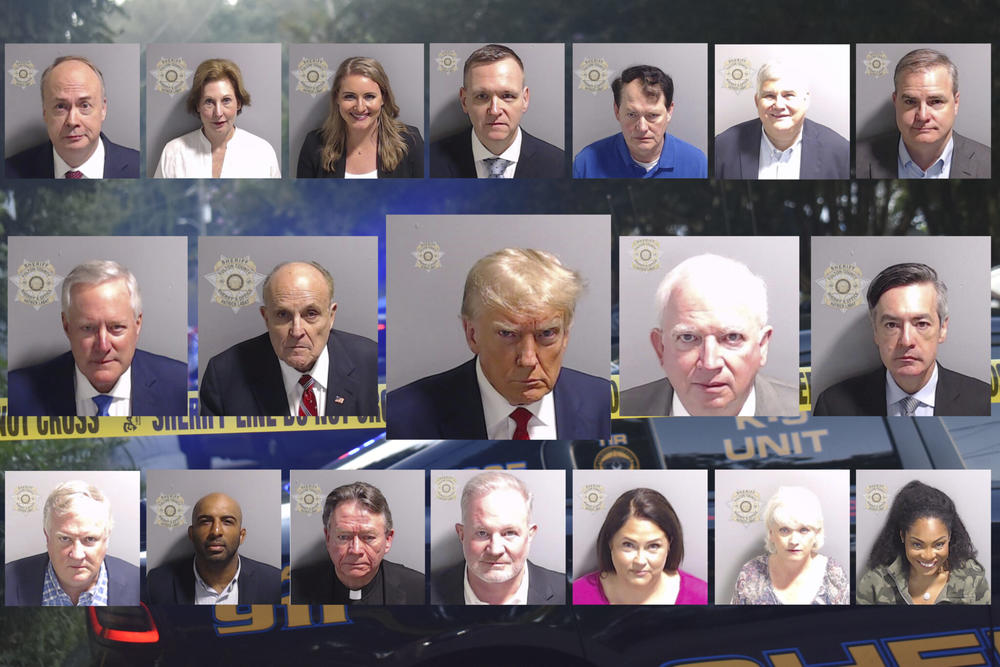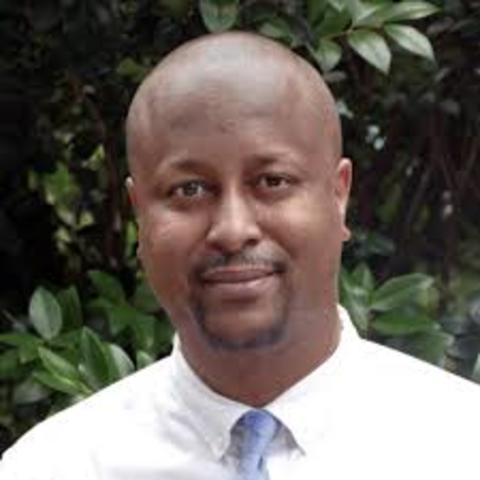
Caption
Booking photos from the Fulton County conspiracy case charging Donald Trump and allies with trying to overturn Georgia’s 2020 election results. Top row, from left Jeffrey Clark, Sidney Powell, Jenna Ellis, Michael Roman, Ray Smith, David Shafer, Sen. Shawn Still. Center row, from left, Mark Meadows, Rudy Giuliani, Donald Trump, John Eastman, Kenneth Chesebro. Bottom row from left, Robert Cheeley, Harrison Floyd, Stephen Lee, Scott Hall, Misty Hampton, Cathleen Latham, Trevian Kutti
Credit: Fulton County Sheriff’s Office

